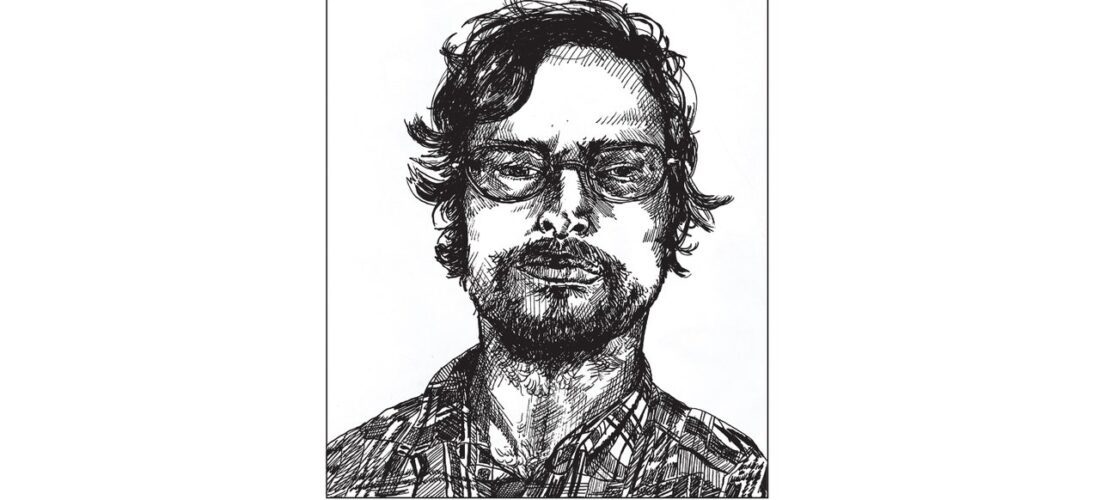Here’s an incomplete cast of characters that populate The Fool, Young Jesus’ provocative seventh album: a pair of washed-up outlaws, an elderly man entirely reliant on his children, a doctor who gets caught creeping on his patient’s social media, and, on “MOTY,” a menagerie of garden variety misogynists, hypocrites, and insecure momma’s boys fronting as alpha males. Oh, and the person who gets lost in their memories of being abused as a child and comes to, decades later, standing over a dog they’ve just beaten.
Yet, the most unnerving characters are the ones John Rossiter allows us to believe are himself—artists who’ve witnessed the life-saving powers of art firsthand and seen it curdle into condescension, delusions of grandeur, and revulsion towards the people most like him. While Rossiter hasn’t confirmed whether any of The Fool is autobiographical, it’s an unsparing, indelible product of a man who had to question every one of his artistic motivations before making the most vital album of his life.
Rossiter’s interrogative approach—to pop music, to literature, gender norms, to the social contract, to truth itself—serves as the connective tissue throughout Young Jesus’ fascinating discography, which has earned legitimate comparisons to the Hold Steady, Talk Talk, and Albert Ayler. But there’s also the one remnant of Rossiter’s formative era as a hard-drinking Midwestern garage rocker: the impulse to blow everything up on the verge of a conventional success. After 2015’s Grow/Decompose brought Young Jesus’ initial phase as Chicagoland barstool bards to a wider audience, Rossiter moved to Los Angeles and did what transplants do: experimented with spirituality, got into free jazz, and started book clubs. A trilogy of exploratory albums followed, each one tantalizingly close to a masterpiece. But due to burnout—or just the sense that Young Jesus’ incarnation as a post-rock jam band had become its own kind of formula—Rossiter disbanded the group and released the stripped-down Shepherd Head; like all Young Jesus albums, it felt transitional, but this was the first time that Rossiter lacked conviction in his direction.
The Fool does not have that problem. The opening duo of “Brenda & Diane” and “Two Brothers” brings Young Jesus back to their roots—gleaming acoustic strums and brassy synth washes, a gruff guy singing imperiously of the downtrodden trying to protect their dignity, the sort of things that gets called “heartland rock” in 2024; surely someone as studious as Rossiter recognizes the evocative nature of their respective titles. Whereas most of Young Jesus’ work on Saddle Creek trafficked in dialectics, arcane philosophical tracts, and 15-minute jam sessions, The Fool gets right to the point, with Rossiter putting his trust in direct statements—“True love is a little bit like hell,” the goddamn American Dream, concepts dismissed as cliche until time and experience reveals their enduring truth. Towards the end of “Two Brothers,” Rossiter meets a humble gardener who works the Earth to get closer to God, which would’ve been too pat of a literary device had Rossiter not temporarily quit music to study permaculture.
